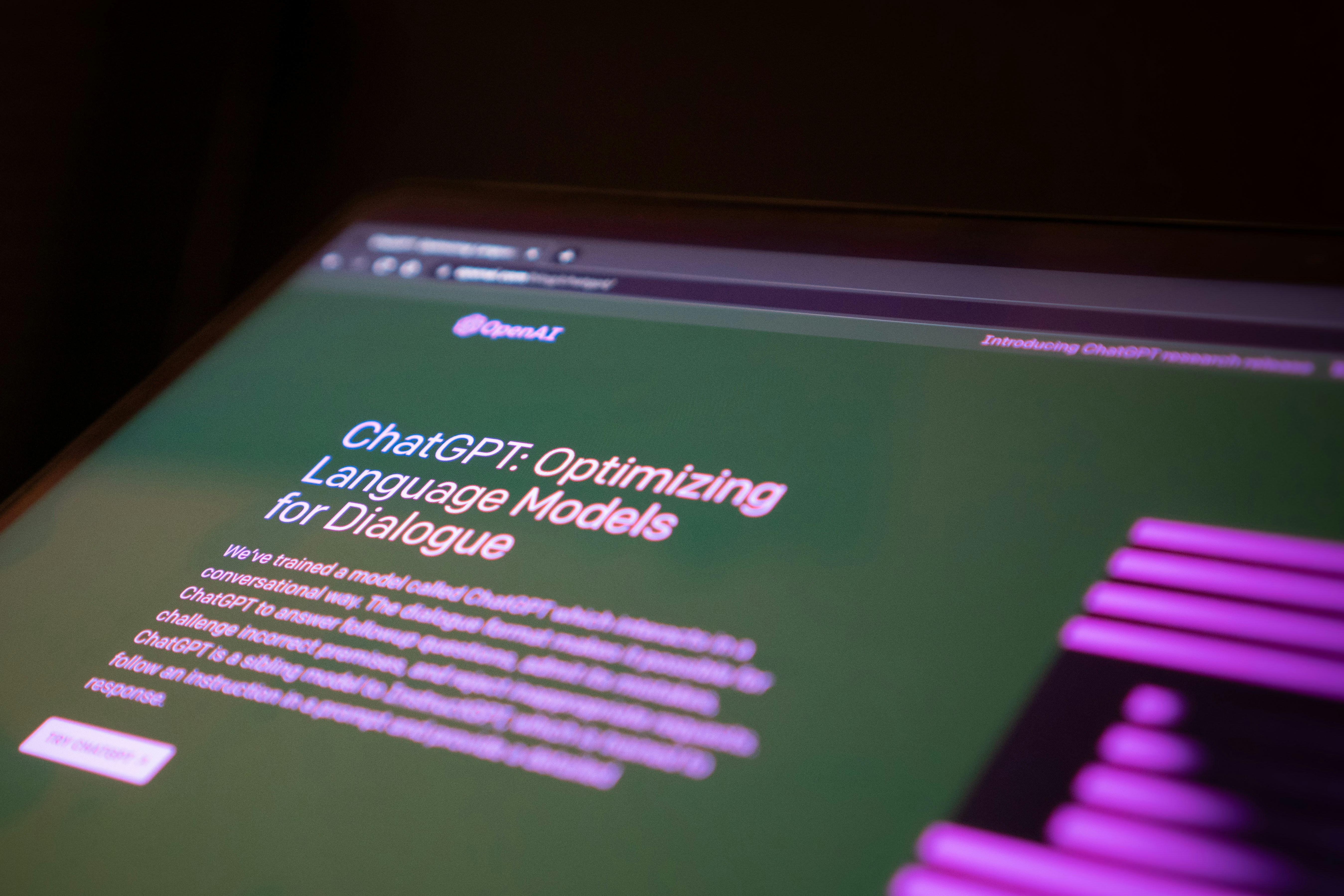
In the rapidly evolving digital landscape, few tools have made as profound and widespread an impact as ChatGPT. In just over a year, this AI-powered writing assistant has moved from novelty to necessity for millions. It is used in classrooms, workplaces, startups, and creative industries. What once required hours of thoughtful effort can now be generated in seconds. Yet, amid this technological marvel lies a subtle, creeping crisis one that has less to do with what AI can do, and more to do with what humans are no longer doing. This is the AI epidemic: a moment in time where we risk outsourcing not just our words, but our voice, our judgment, and our capacity to think critically.
There is no doubt that AI is an exceptional tool. Its ability to process language, generate responses, and mimic various writing styles is unparalleled. It can assist with everything from essays and business emails to marketing copy and poetry. The problem, however, does not lie in the tool itself, but in the way it is being used or more precisely, how it is being misused. Increasingly, people are taking what the AI produces and publishing it verbatim, with no editorial scrutiny, no contextual adaptation, and no personal nuance. Entire blog posts, cover letters, product descriptions, and even heartfelt social media captions are being copied, pasted, and posted without a second thought. What should be a collaborative process between human insight and artificial intelligence is, instead, becoming a mindless transaction one that erodes originality and discourages deeper reflection.
As designers, developers, writers, and thinkers, we've long upheld the values of creativity, critical thinking, and authentic voice. But lately, a troubling trend has taken root, especially among younger users. Students, for instance, increasingly struggle to write their own CVs without turning to an AI prompt. In the design world, case studies that once chronicled detailed processes and personal learnings are now being outsourced to generative models, resulting in soulless documentation devoid of real reflection. Even the most personal digital spaces Instagram bios, Twitter threads, LinkedIn headlines are starting to read the same, marked by the unmistakable cadence of AI-generated prose. These aren't just isolated behaviors; they are signs of a broader disconnection from the act of thinking, composing, and expressing for oneself.
This is not merely a question of productivity or efficiency is a question of intellectual agency. When we allow AI to fill in our blanks without questioning what it has written, we are not just automating tasks we are beginning to automate thought itself. It is similar to relying on a calculator without knowing basic arithmetic: we may arrive at the correct answer, but we are unequipped to understand, verify, or explain it. The capacity to write is deeply tied to the capacity to reason. It is through writing that we clarify our thoughts, test our logic, and engage with the world. If we surrender this process entirely to machines, we risk losing the very faculties that make us capable of meaning-making in the first place.
The most concerning aspect of this epidemic is not the decline in writing quality it is the loss of opportunity. When we lean too heavily on AI without adding our own voice, we forgo the chance to express personality, to communicate values, to inject emotion and insight into our words. Writing, at its core, is not just about transmission; it is about transformation. The act of crafting a sentence, of choosing a word over another, of editing and revising these are cognitive processes that sharpen our thinking and reveal our intentions. When these are skipped, the result may be grammatically correct, but intellectually hollow.
It is important to be clear: this is not a call to reject AI. On the contrary, ChatGPT and similar tools can be powerful collaborators when used with care and consciousness. They are excellent for sparking ideas, outlining thoughts, suggesting phrasings, or accelerating routine work. But they must remain just that collaborators, not replacements. A responsible use of AI means using it to amplify human intelligence, not bypass it. It means treating AI-generated content as a first draft, not a final product. It means bringing your own context, editing with intention, and ensuring that what is published still reflects who you are and what you believe.
The antidote to this epidemic is not less technology it is more intentionality. We must teach ourselves and each other that the value of writing lies not only in the outcome, but in the act itself. Whether you're a student submitting a paper, a founder crafting a mission statement, or a designer documenting a project your words matter not because they are flawless, but because they are yours. The world needs more human stories, not fewer. It needs your awkward drafts, your honest attempts, your stumbles and breakthroughs. These are the traces of real intelligence, of lived experience, of depth.
To navigate this era responsibly, we must build a new culture of AI literacy one that celebrates what these tools make possible, but also fiercely protects the irreplaceable nature of human voice. Because in a world of mass automation, authenticity becomes a rare and radical act. And the future of writing, of learning, and of critical thinking depends on our ability to remember that some things are worth saying not because they are perfect, but because they are personal.
As a designer, I use AI every single day. Tools like ChatGPT, image generators, and workflow automators are part of my creative toolkit and I genuinely love them. They help me prototype faster, research better, and sometimes even break through creative blocks. AI makes my work sharper and more efficient. But the problem isn't AI it's how we're using it. Using these tools to enhance your work is very different from using them to replace the effort altogether. Mindlessly generating content just to tick a box or pass by at work isn't the future we should be building. The real magic happens when AI is paired with human intention, craft, and care. That's where good work lives and that's what we should all strive for.
References
-
Students use of AI spells death knell for critical thinking The Guardian
-
How AI is depriving students of basic human skills“ The Washington Post
-
Increased AI use linked to eroding critical thinking skills“ Phys.org
-
ChatGPT effects on cognitive skills of undergraduate students “ ScienceDirect
-
Exploring the use of ChatGPT in academic writing: A systematic literature review “ AWEJ
-
Everyone Is Cheating Their Way Through College“ New York Magazine
-
Let's Talk About ChatGPT and Cheating in the Classroom“ WIRED
-
How I Realized AI Was Making Me Stupidâ€â€Âand What I Do Now“ WSJ
-
Learning not cheating: AI assistance can enhance rather than hinder skill development“ arXiv

